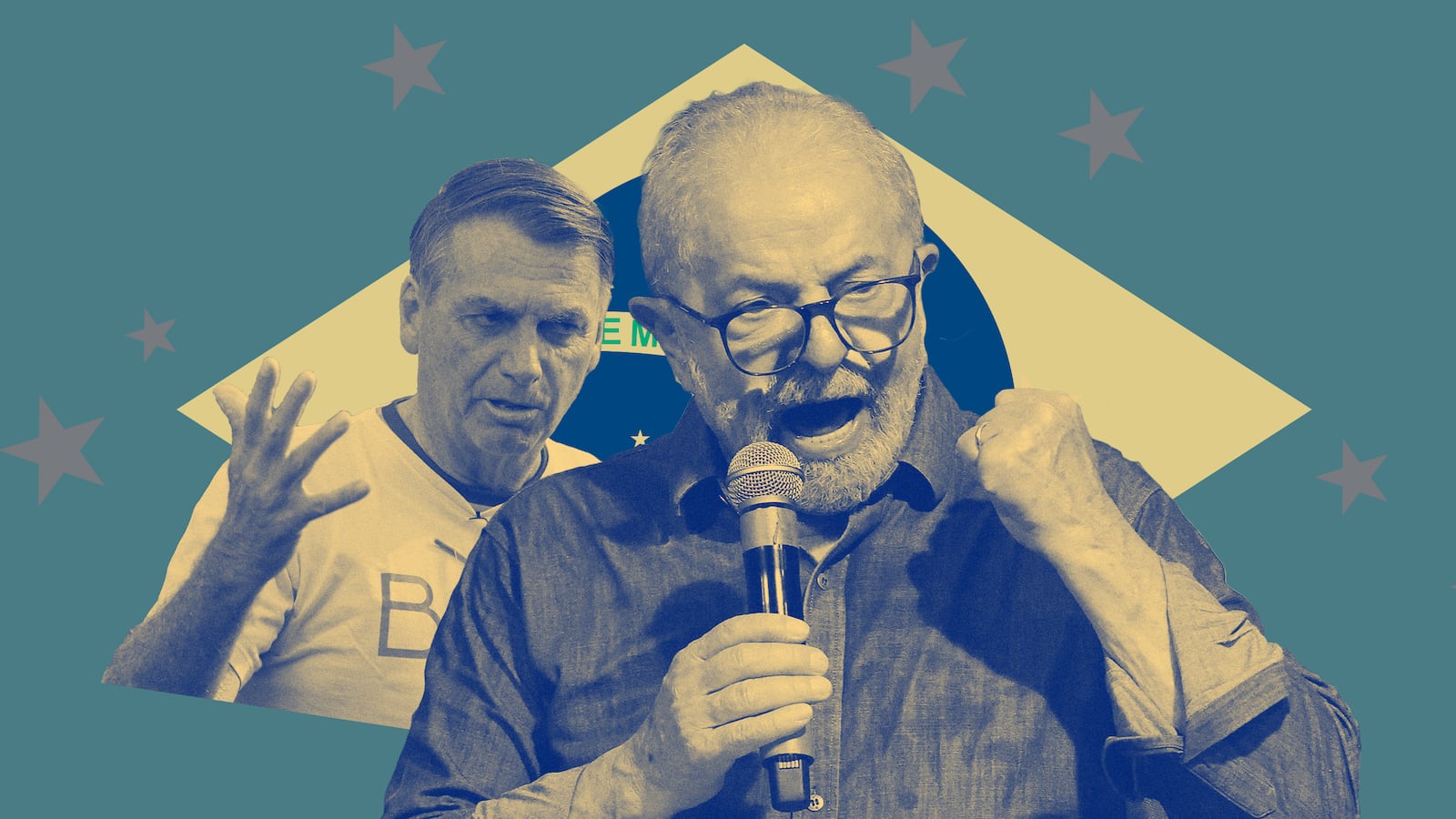RIO DE JANEIRO—On the left, tears of joy and profound relief. On the right, anger and resentment. On Sunday, Brazil elected former President Luiz Inácio Lula da Silva to be president once again.
Lula, the leftist figure venerated by millions of Brazilians, beat the current, far-right icon, President Jair Bolsonaro, by a tiny margin of less than 1 percent.
“We beat back fascism, division, and hatred, and now it is time for Brazil to heal, unite, work toward a more just society and protect our beautiful Amazon rainforest,” exclaimed Lula supporter Maxi Quaresma as he was celebrating at São Salvador Square in the Rio de Janeiro neighborhood of Laranjeiras.
São Salvador Square is a favorite hangout for left-leaning Brazilians in Rio de Janeiro. But conservatives describe it as a “junkie place for layabouts.”
Evangelical Juana Cuesta makes the sign of the cross upon hearing the name of the square. She had been praying for Bolsonaro with dozens of her fellow worshippers all Saturday night into early morning and was totally exhausted. But determined not to miss this historic election, she went to cast her pro-Bolsonaro ballot. Cuesta is part of a fast growing evangelical movement that sees Bolsonaro as a protector of their lifestyle and safeguard of Brazil as a potential superpower.
“‘O Míto’ is the only savior for our country,” she said on Sunday morning, alluding to Bolsonaro’s nickname—The Legend—among his fierce supporters.
Cuesta spent Saturday night under the open sky in the makeshift church. Dozens of plastic chairs and a small altar did the trick. She was wrapped in a Brazilian flag, with many others in national soccer jerseys. That is because Bolsonaro identified his persona and movement as the core of the Brazilian nation.
“We are the real Brazil. Lulistas just want to run this country to the ground, stealing away, and Lula is their gang leader. Since the pandemic they have been crying out for help. And now with the inflation, it is even worse. But we cannot keep giving them stuff for free. We will go bankrupt and end up like Venezuela,” Cuesta said.
For weeks on end, both political camps have been at each other’s throats. Throughout neighborhoods in Rio de Janeiro, shouting matches between Lulistas and Bolsonaristas were on display. Under the silent gaze of the huge Cristo Redentor statue, which overlooks Rio perched atop a 2,300-foot-high mountain, neighbors snarled at each other from their windows and balconies as they hurled insults, communist or fascist, until their voices turned hoarse.
“We never ever had this kind of polarization in Brazil,” said Thomas Traumann, who served for four years as a spokesperson to Dilma Rousseff, the country’s first female president. He believes that Brazil’s right wing is now following the Trump playbook.
Just like Trump, Traumann predicts, Bolsonaro will never accept electoral defeat and will go on claiming the left stole the vote in a rigged election. “I am afraid we will go through our version of Jan. 6, 2021, when Trump’s people stormed the Capitol. The only difference is that our key date is Nov. 15, when Brazil commemorates the founding of its republic.”
On Sunday night, Bolsonaro refused to concede defeat.
Politics this year has consumed the Brazilian psyche. Even soccer, the pride of the nation, often compared to religion here in Brazil, has taken second place.
“This might be the very first time when not even soccer could take the pressure and anxiety off the troubled mind of millions of Brazilians,” said Professor Sergio Settani Giglio, who teaches at the State University of Campinas. Settani Giglio has written extensively on the phenomenon of Brazilian soccer and its influence on society.
He also borrows from current American politics when he says this election was a battle for the soul of the nation, recalling Joe Biden’s presidential campaign slogan.
Many on the left believed that four more years of Bolsonaro would turn the country into a police state dominated by evangelicals and big agro-business.
“I don’t recognize this Brazil. The other day, a guy came to me on Copacabana Beach with a pistol in his swimsuit just to threaten me,” a middle-aged man who introduced himself as Marcelo said. Marcelo is openly gay and was at the bar with his boyfriend at Ipanema Beach.
Brazilians on the right do look down on people like Marcelo, but in conversations they insist that the real threat is Lula’s vast government spending and corruption. His government, according to many of them, will do away with the dream of a truly great Brazil.
“Lula’s ambition is to compete with India at best. But our bar is much higher. We could be right there with the U.S.,” contended Juana Cuesta.
Donald Trump comes up again in our conversation, particularly his slogan “Make America Great Again.”
“Now with Lula in power? We are more like ‘Make Brazil Great One Day,’” concluded Cuesta after a short pause.






